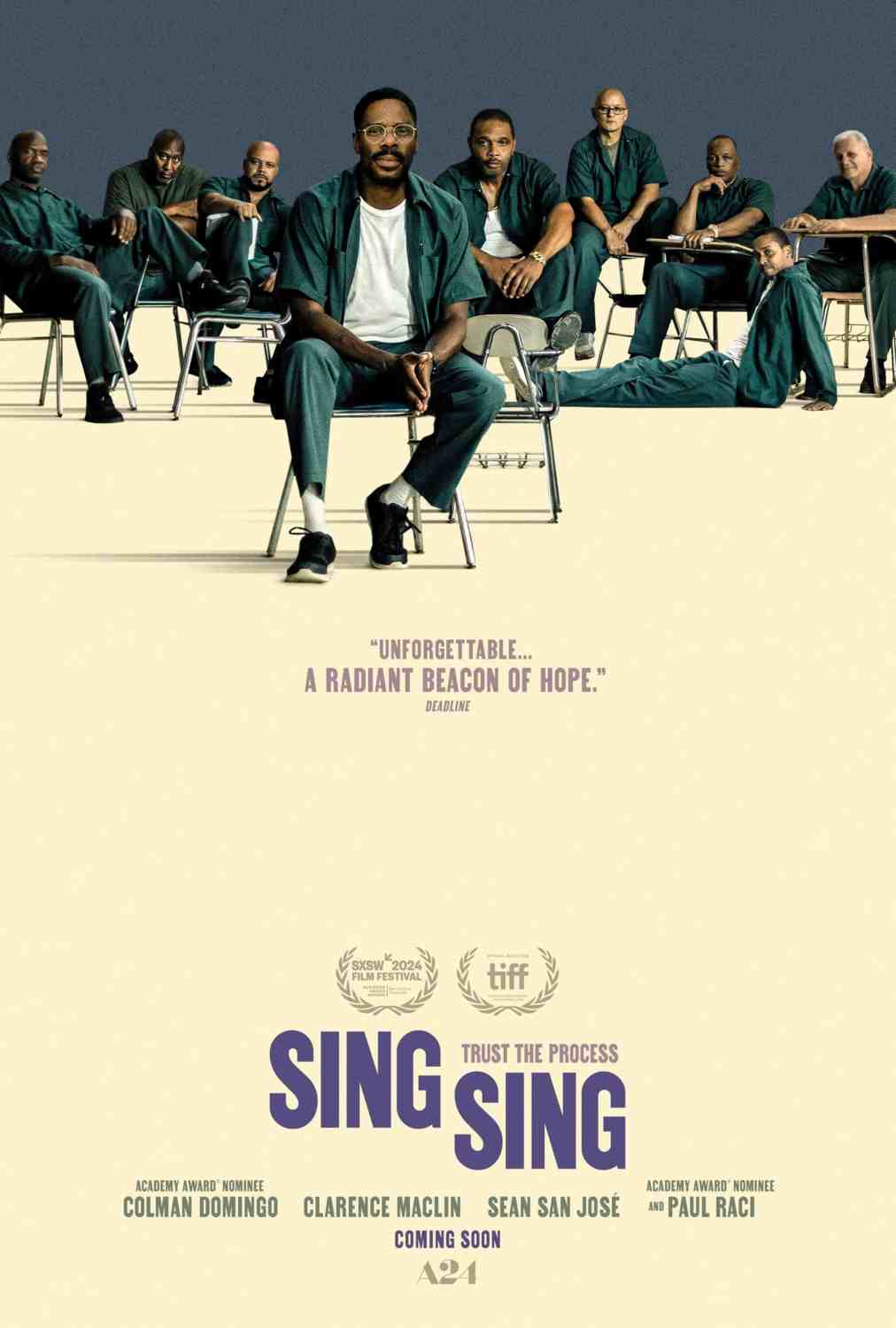A new entry into the pantheon of great US prison dramas: Baroness Chakrabarti reviews 'Sing Sing'
Colman Domingo as Divine G | Image by: Everett Collection Inc / Alamy Stock Photo
3 min read
With penal reform high on our domestic agenda – and with the US presidential election just six short weeks away – go and see this exquisite study of hope and possibility, starring the infinitely watchable Colman Domingo
An abiding childhood memory involves me watching the end credits of an American movie with my father. “Look at all those surnames,” he instructed. “Italian, Irish, Japanese and still all American.” No doubt this encouraged my admiration for the US; my love of its cinema further nourished by hours of viewing with my mother. Prison flicks were always a favourite and, as with other genres, we endlessly debated “greatest lists” of these. Which would be in your top 10? Brubaker? The Shawshank Redemption? Prepare to make space for a new entry: Greg Kwedar’s Sing Sing.
The film stars the infinitely watchable Colman Domingo, fresh from the success of last year’s Rustin. Clarence Maclin, Sean San Jose and an ensemble of other former prisoners play themselves in the great tradition of Italian neorealism (Luchino Visconti, Roberto Rossellini, Federico Fellini).
 Clarence “Divine Eye” Maclin as himself | Image by: Everett Collection Inc / Alamy Stock Photo
Clarence “Divine Eye” Maclin as himself | Image by: Everett Collection Inc / Alamy Stock Photo
Sing Sing offers an alternative perspective of the infamous New York maximum security facility. But its title takes on an additional resonance as its heroes engage in its Rehabilitation Through the Arts (RTA) programme, putting on plays for their fellow inmates. Alumni of the scheme demonstrate only a three per cent post-release recidivism rate, as opposed to 60 per cent for the wider population.
The age-old conceit of a drama within the drama draws us into inspirational insight of men’s lives both under and before incarceration. It speaks so much to racism, drug culture, dislocation and masculinity in modern America. The word “process” takes on poignant ambiguity in variously referring both to artistic and self-examination and the prison system. A recurring question is, who and what is “acting” for? For the purposes of surviving in this environment and attempting to seek clemency and release, perhaps?
No government can call itself progressive without prioritising both penal reform and accessible arts and theatre funding
Pat Scola’s cinematography is a joy in itself, bringing light, colour and real beauty to the views of upstate New York from the penitentiary. In the opening frames we see a small bird on a barbed wire fence. In a world of brutalist cells and green scrubs, other images are more subtle. Spectacles symbolise both the power of reading and male vulnerability as the protagonists wax and wane in their ability to cope with their desperate predicament, and even teach and help each other.
 Bryce Dessner’s soundtrack brings delicate counterpoint to emotional developments rather than traditional action drama. And just before this film’s end credits, we see real historical footage from the RTA programme that renders earlier scenes even more powerful.
Bryce Dessner’s soundtrack brings delicate counterpoint to emotional developments rather than traditional action drama. And just before this film’s end credits, we see real historical footage from the RTA programme that renders earlier scenes even more powerful.
As delegates assemble for the first Labour Party Conference of the new Parliament, I would wish every one of them to have seen this exquisite study of hope and possibility. No government can call itself progressive without prioritising both penal reform and accessible arts and theatre funding.
And as the US goes to the polls this November, Sing Sing is a reminder of the American nightmare of mass incarceration in place of the dream of opportunity once idealised by so many. In the words of the 1776 Declaration of Independence: “We believe these truths to be self-evident, that all men are created equal…”
Baroness Chakrabarti is a Labour peer
Sing Sing
Directed by: Greg Kwedar
Venue: General cinema release
Distributed by: A24
